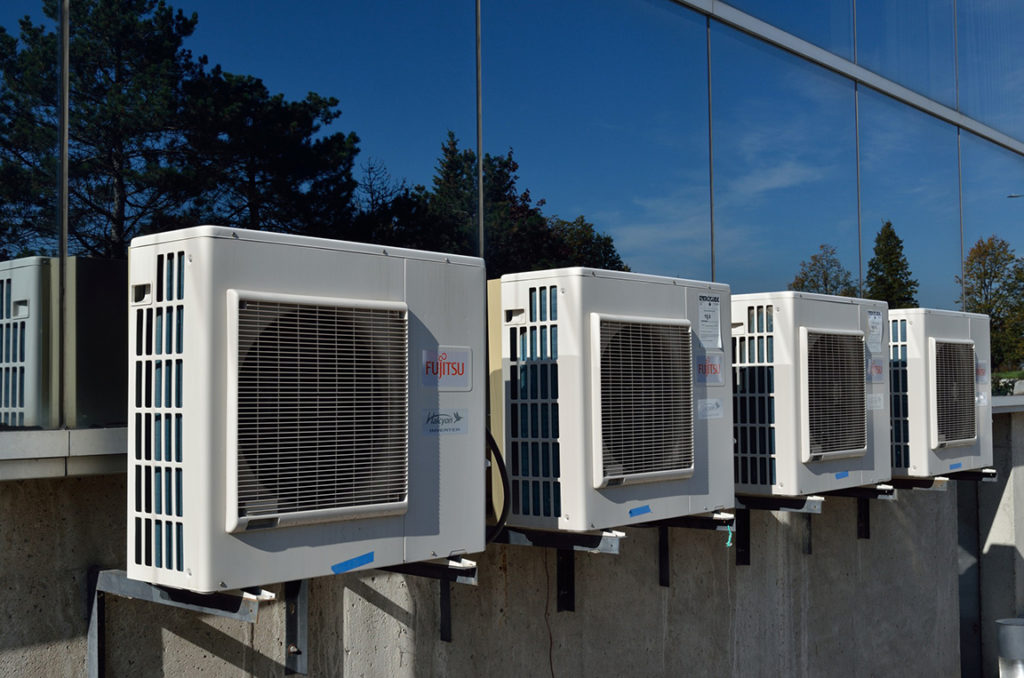Heating, air-conditioning, and Ventilation (HVAC) systems are designed to provide thermal comfort and a high level of air purity, and it uses the principles of thermodynamics, heat transfer and fluid mechanics to either heat exterior air, and send it into the building, or the other way round, as with air-conditioning. These energy efficient heat transfer systems come in many sizes, with huge systems providing heat for shopping malls, hotels, and other large buildings, and a scaled down version would be used for domestic environments. The actual area of the interior would directly determine the size and capabilities of the HVAC system, and ideally, the system would be designed, built and installed by the same company.
Heat Pump Technology
HVAC systems rely on heat pumps for the transfer, and can be used in an air-to-air capacity, or air-to-water, which would power a central heating system, while also heating up the domestic water. For heating, the pump would take air from the outside, and after heating, it would be sent through the building via ducts that are usually hidden behind the walls or under flooring. Air-to-air heat pumps are more popular for new buildings, and with a correctly designed system would either heat or cool the entire interior. If you needed heat pump servicing in West Sussex, for example, an online search would bring up a list of suitable contractors. For a domestic environment, the engineers would decide on the refrigerant and the size of the compressor, and build the system accordingly.
Correct Ventilation
Natural ventilation might be sufficient to give an acceptable airflow from the exterior, but if not, vents and extractors can be installed. There are two types of ventilation for a building, the circulation of the air within the building, and also a flow of air from outside, which would also include an extractor to create a good airflow. For large projects, this can be very complex, but nevertheless, is essential for good quality air, and for a typical home, this would be relatively easy to create.
Zoning
The great thing about HVAC systems is that you can zone off certain areas of the house that perhaps you don’t need to heat, which makes perfect sense, and aside from the already excellent energy conservation, this will reduce your heating bills even more. Zoning also works with traditional water central heating systems to some degree, as you can turn off the valves is some rooms, and over a long period this will add up to a sizeable saving.
Professional Design and Installation
Ideally, the homeowner would call in an established HVAC system supplier, who would survey the property, and once they have their essential data, the right components would be selected and put together to provide the perfect climate control. Once the system has been fabricated, it would be installed and tested, then, with regular servicing, the property owner can relax, safe in the knowledge that essential heating and cooling are on tap.
If you would like to know more about HVAC systems and also get an idea of cost, an online search will reveal the location of a local contractor who can answer any questions you might have and give you a fair quote for the recommended course of action.


